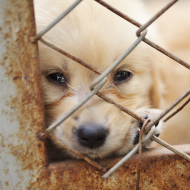
Majority of vets unsure on how to report cases
Dogs Trust has published a new investigative report on the illegal importation of dogs to the UK. Findings have revealed that improvements need to be made, both in the reporting process and in public awareness.
The report showed that 74 per cent of veterinary professionals surveyed believed that they had seen a potentially illegally imported dog in the past 12 months, but only 50 per cent were aware that suspected cases of illegally imported dogs should be reported to Trading Standards.
Tell-tale signs of an imported puppy as described by veterinary professionals included:
- Issues with the microchip, or a lack of microchip or records altogether
- Puppy being collected from places such as carparks, or being brought to the owner’s home
- Exhibiting poor health or a poor body score
- Being underage and under-socialised
- Owners not being allowed to see the puppy’s parents
- Any of these signs being present for popular dog breeds.
Other answers regarding where to report a suspected case of an imported dog included Defra; animal welfare organisations; the Veterinary Defence Society; the local authority or the police. 40 per cent of veterinary professionals polled said they had attempted to report a dog they suspected had been illegally imported, but more than half (56 per cent) found difficulty in reaching people out of hours, or in knowing who to contact in the first place.
Dogs Trust also reported that, according to figures from Defra, more than 300,000 dogs had been imported to the UK through the Pet Travel Scheme (PETS) in 2018. This number has been increasing yearly since 2012, when controversial changes to PETS standardised pet travel across the EU.
Veterinary director of Dogs Trust Paula Boyden said: “These findings highlight an urgent need to improve the process of reporting cases to Trading Standards in a timely manner, particularly out of hours.
“More could be done to build confidence among vet professionals in the reporting process, so that when they take the time to report a suspected case, they feel assured it will be handled promptly and consistently. We will continue to do all we can to assist Trading Standards and other agencies to improve this process.
“It is clear that an improved protocol around reporting needs to come hand in hand with better public awareness of the illegal importation of dogs.”



 The RCVS has announced a new version of its 1CPD mobile app, with enhanced features for veterinary surgeons and veterinary nurses to record their continuing professional development.
The RCVS has announced a new version of its 1CPD mobile app, with enhanced features for veterinary surgeons and veterinary nurses to record their continuing professional development.